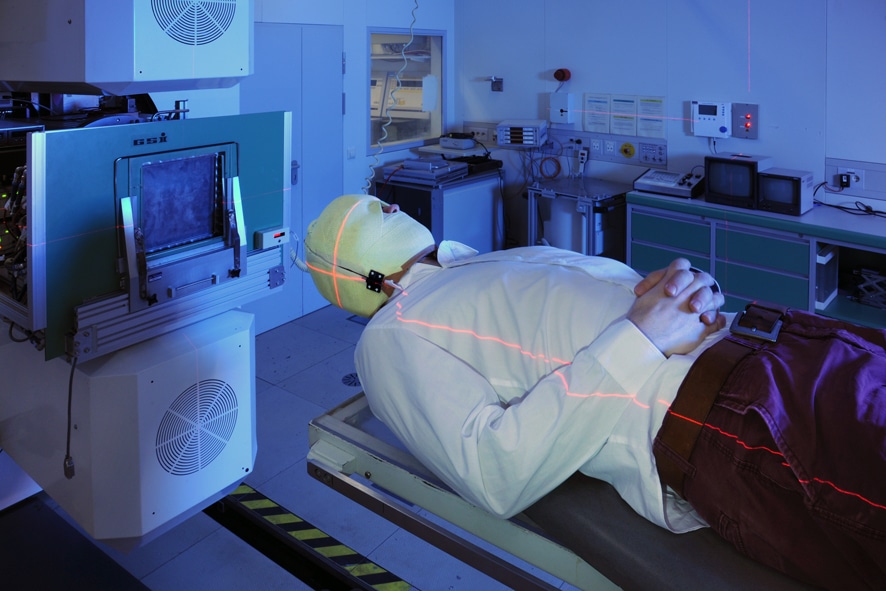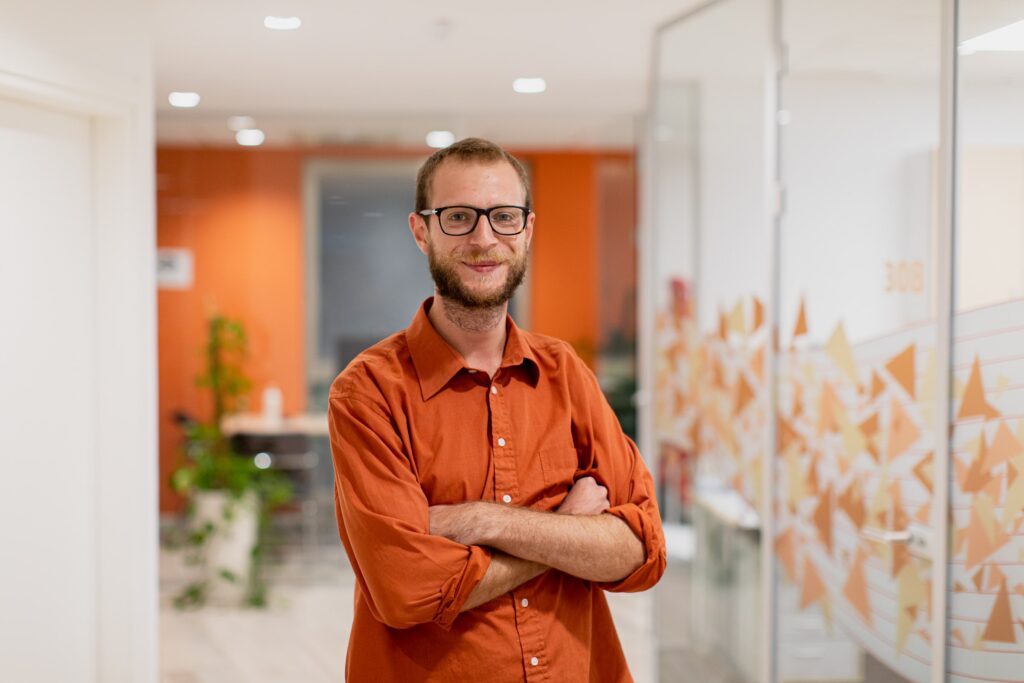Real-time 4D-dose calculation to assess the efficacy of motion mitigation strategies
Planned secondments: CNAO (Italy), Danish Center for Particle Therapy (Denmark).
Project description
The foundation for adaptive therapy is sufficient knowledge of possible dose errors under the current plan. In the therapy of static tumors, this assessment can be made offline based on images-of-the-day. For dynamic targets, precise knowledge of the actual target motion is necessary to assess the actually delivered dose. Recently, an online 4D-dose reconstruction method was implemented for the dose delivery system of CNAO, which is also in use at GSI. It enables the reconstruction of 4D-dose based on machine beam records and motion monitoring. Each beam is sorted to a phase of a previously acquired 4D-CT, assuming a regular motion with nominal beam ranges.
In the framework of an ongoing collaboration between CNAO and GSI, this approach will be extended to include irregular motion as assessed by online motion monitoring as well as online range data as available, also from other projects of RAPTOR. The 4D-dose will be reconstructed using 1) shifts of the Bragg Peak position only assuming a rigid motion in water, to be compared to a precomputed nominal dose to water, and 2) non-rigid motion extrapolated from 4D images using deformable image registration (DIR), with dose computed on CTs depicting the patient’s anatomy. The second model is more accurate but will be more prone to uncertainties due to a higher degree of complexity. The first approach might be sufficient to detect relevant dose deviations to trigger an adaptation. This capability will be exploited to experimentally assess different motion mitigation strategies such as gating, beam tracking and 4D-optimized plan libraries in the presence of irregular motion.
The PhD student will be employed at the GSI Helmholtzzentrum für Schwerionenforschung in Darmstadt, under the supervision of Dr Christian Graeff and will be registered for the PhD program at the TUD (Darmstadt), supervised by Prof Marco Durante.
GSI operates one of the leading particle accelerators for science. In the next few years, the new FAIR (Facility for Antiproton and Ion Research) one of the world’s largest research projects, will be built in international cooperation. GSI and FAIR offer the opportunity to work together in this international environment with a team of employees committed to ensuring each day to conduct world-class science. The Biophysics department is an interdisciplinary collaboration of biologists, physicists, chemists, biochemists and technicians. The multidisciplinary research in our group covers a wide range of topics from radiobiology, radiation physics and space research to radiation therapy. The Medical Physics Group within the Biophysics department deals with advanced treatment planning and delivery research for ion beam therapy. In particular, the group investigates precision therapy for mobile tumors in organs of the thorax and abdomen, but also for non-cancer diseases such as cardiac arrhythmia.
For more information concerning the research project please contact: Christian Graeff


Cosimo Galeone
Early-Stage Researcher at GSI Helmholtzzentrum für Schwerionenforschung
My name is Cosimo Galeone, I am 27 years old and I am Italian. I earned a Master’s degree in nuclear engineering at the Politecnic of Torino. For my master’s thesis, I joined a team at the University of Torino entirely devoted to medical physics that allowed me to get more and more interested in the field and also to grow personally by working with people coming from all over. Currently, I am doing a dual-PhD between TU Darmstadt and the University of Torino, respectively, in electronic engineering and physics, under the supervision of Christian Graeff.
I love football, and movies, but my real passion is music which keeps me company even when I work.
For my project, we will develop a tool to reconstruct the delivered and planned dose in real time during the treatment. The object is to assess the accuracy of the delivery and measure the dose errors. In the scenario of daily adaptive particle therapy, this comparison is crucial to adjust the plan for the following day. My PhD work aims to have a functioning tool tested and ready to be applied in some clinic centres.
Working in research is captivating; it allows you to progress and interact with peers from all over the world. I decided to apply for this project because working in the particle therapy field gives me the opportunity to be continuously challenged and pushed to find new solutions, knowing that the results of my research could have a positive and significant impact on the health of ill people.

GSI Helmholtzzentrum für Schwerionenforschung GmbH
Project: Real-time 4D-dose calculation to assess the efficacy of motion mitigation strategies
GSI Helmholtzzentrum für Schwerionenforschung operates unique accelerators for heavy ions. Researchers from around the world use this facility for experiments that help them make fascinating discoveries in basic research. In addition, they continuously develop new applications in Medicine and Technology.


